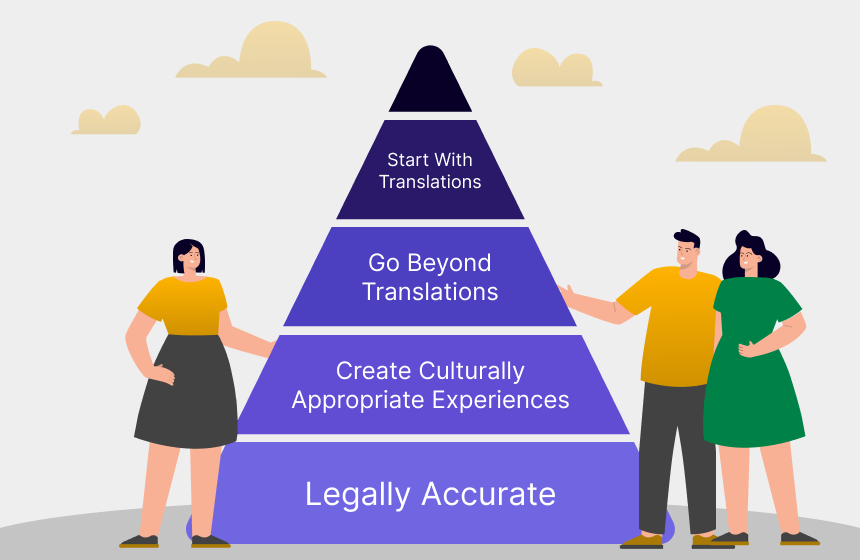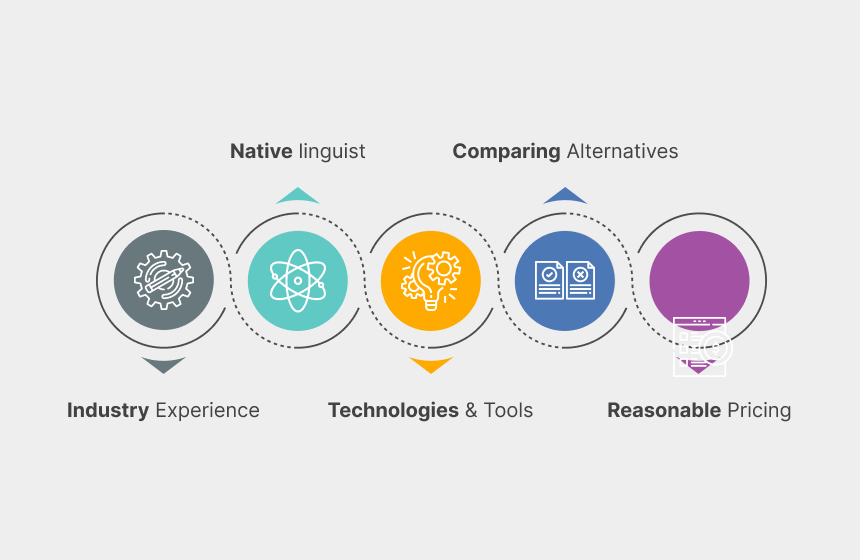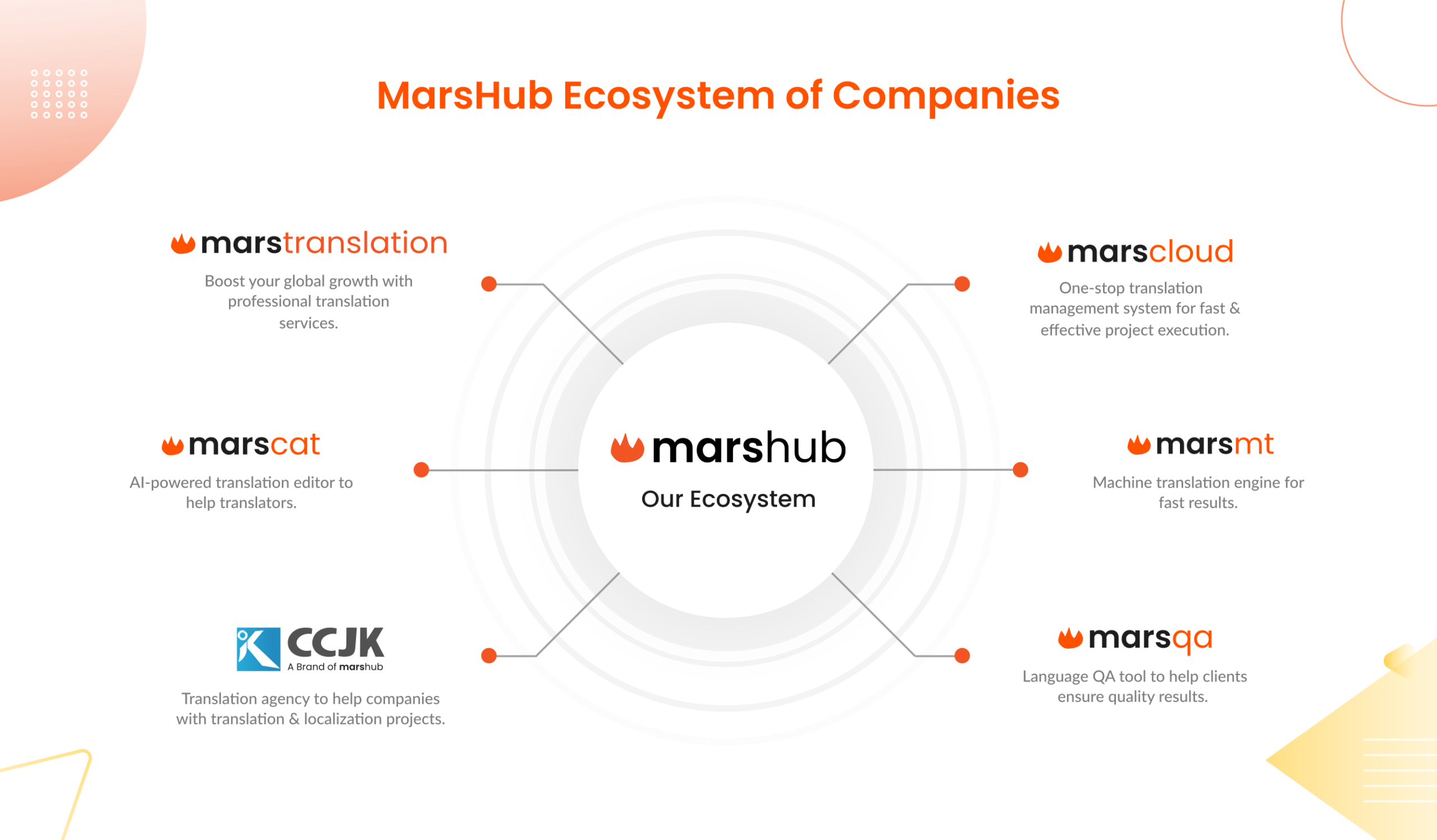What if someone gives you a key to get inside your favorite sci-fi movie? Where you can interact and be any character of your choice. Wouldn’t it be amazing? It might sound like a crazy idea from Frederik Pohl’s novels, but it is all real.
With the metaverse, living in a world with endless possibilities, where everything is accessible, is possible now. A virtual world that literally makes you travel to places all around the globe without leaving your home. Whether you want to watch a movie at a theatre, attend a live concert, or visit a museum from another corner of the world, it is all accessible at your home with metaverse technology.
The metaverse industry is emerging as a new big thing that has the competency to completely transform the world around us. Just like any other business, localizing the metaverse content is critical for appealing to maximum audiences. In this article, we’ll talk about the significance of localizing metaverse content and how it can leverage the metaverse industry.
What is Metaverse?
The metaverse is like a virtual parallel universe that recreates the reality parallel to this physical world. The user can take an avatar and interact with the virtual environment in real time. In the future, this technology is also expected to have a great influence on the gaming industry, social media networking, and the entertainment industry. It is an advanced version of VR and AR. It makes the virtual world so real that users start feeling themselves a part of that world.
Since the pandemic, many gaming companies, such as Fortnite and Roblox, have jumped into the metaverse to offer a more realistic gaming experience to their users. The use of the metaverse is not just limited to it, the demand for this technology is expected to increase in the medical industry. To meet the increasing need for medical services around the world, metaverse technology can be used as a medium for medical staff training.
Significance of Localization for Metaverse

The COVID-19 pandemic has not just changed our social behavior but also leveraged the emergence of innovative technologies. When the real world was not so favorable for businesses, virtual reality technology allowed them to free themselves from the limitations of the real world. Making the people less dependent on social interactions, and offering them an environment, where they can have virtual brand experiences that feel almost real. Knowing the significance of this technology, many businesses are getting into the metaverse waters to cope with future technological advancements.
However, the most important thing, when it comes to incorporating metaverse in your business, is creating awareness among customers internationally. Just like any other technology, some customers will feel hesitant to adopt any metaverse technology. Localization is a great way to make more customers get along with this innovative technology.
Fundamentals of Metaverse Localization

Metaverse localization is a marketing strategy used by businesses to promote this technology internationally and get more customers on board to use it. With the help of localization, businesses can capture a larger share of the global markets and generate more revenue. Following are a few guidelines that you must keep in mind while doing the localization for metaverse content.
1. Start With Translations
Translating the content into the local languages of your target customers is probably the most crucial step in localization. A majority of the population around the world doesn’t understand the English language. So, it is important for businesses to create an inclusive experience for users by communicating with them in their native languages. It also fills the communication gap and allows the users to fully connect with the metaverse content and interact without any confusion.
To translate your metaverse content, you can hire a localization team or make a contract with a freelancer linguist. Your translations should be done by professionals only who are also familiar with the cultural intricacies of a particular region.
2. Go Beyond Translations
Most businesses limit their localization to translations, and they think localization is just another word for translation. Localization is a broader concept than translation. In fact, translation falls under the umbrella of localization, but there is a lot more to it. In the localization, you have to modify all elements of your metaverse content, including the graphics, icons, designs, and layouts to the local preferences. You can understand more about localization vs translation from here.
The metaverse applications must be created in a way that they would get automatically adjusted to the local preferences of that region. You must get professional developers and graphic designers on board for localization purposes. For example, if someone uses a metaverse game in Arab countries, it will automatically translate the content into Arabic. Arabic is written right to left, whereas we write English from left to right, so to adjust the translated language in the application, you have to modify the design.
3. Create Culturally Appropriate Experiences
Understanding the cultures and social behaviors of your target audiences is significant to making your metaverse content connect with the audiences at a personal level. You have to modify the whole look and feel of your content based on the taste and interests of a region. For instance, if music is playing in the background, you should change it for every region based on their musical preferences. Similarly, every culture has some sensitivities and emotions attached to particular things. Things that might be normal in one culture could be perceived as offensive in another. While localizing the content, it is important to ensure that there is nothing in your content that can offend your audience.
4. Legally Accurate
As we know every country has its own legislation and regulations that must be kept in mind while doing localization. For instance, while doing localization for a country, you should be aware of the censorship law in that region. Not all countries have the same censorship law. Based on the laws in your target region, you have to make changes to your metaverse content accordingly.
Similarly, you must ensure that your content does not violate any laws and regulations of that region. Your localization partner will help you get away with the legal nuances of a market to avoid legal penalties.
Points To Consider While Choosing a Localization Partner

The localization partner that you would choose has a huge impact on your overall credibility in metaverse localization. It would be best if you chose a reliable and trustworthy localization partner who would take care of all aspects of localization. It will help you create optimized brand experiences that resonate with local audiences. Following are some important points to consider while selecting your localization partner.
1. Industry Experience
Your localization partner should have extensive experience working in your industry. For instance, if you are a gaming business, your service provider should have industry-specific experience in the gaming field. This would allow them to escape industrial challenges without affecting the localization process.
2. Native Linguist
For the translations, it would be great to hire someone who is not just familiar with linguistics but is also a native speaker with sound cultural understanding. One more thing, the biggest mistake companies make is that they hire bilinguals for translations. Just because someone understands a language doesn’t make them an ideal choice for translation. Translation is a skill that requires experience and expertise.
3. Technologies & Tools
Ask your service provider about the QA testing and CAT tools they use to manage localization and ensure high-quality outputs. The technologies and tools your localization partner uses also have a lot of influence on your localization project results.
4. Comparing Alternatives
Online research is also an important factor to consider before choosing your perfect localization partner. Look at the social media pages and Google reviews of all potential service providers. This would help you get an idea about the company’s credibility and how satisfied its customers are with the services. Doing this would help you choose a localization partner with a good market reputation.
5. Reasonable Pricing
Last, but certainly not least, pricing matters the most. You can end up finding the perfect localization partner, but if their services are beyond your budget, it is still not your ideal choice. So, the real challenge is to find someone with the right expertise, a positive image, and reasonable pricing. You should choose someone with affordable rates and flexible localization plans. The prices mentioned on the websites of companies are not always transparent. Sometimes there is a hidden cost added to the monthly and annual fees. You better confirm the prices from the service provider, so there will be no hidden charges in the future.
Summing Up!
Metaverse universe technology is having a moment, and it is expected to develop further in the future. There is a high potential for the gaming, social media, and entertainment industries to multiply their revenues by incorporating metaverse technology into their digital products. Metaverse would enhance the customer’s experience of online shopping, playing games, watching movies, and networking on social media platforms. There is a need for companies to localize their metaverse to capture a larger market share and do mass commercialization.
Make sure to follow the points mentioned in this article to choose the right localization partner for your metaverse content.



